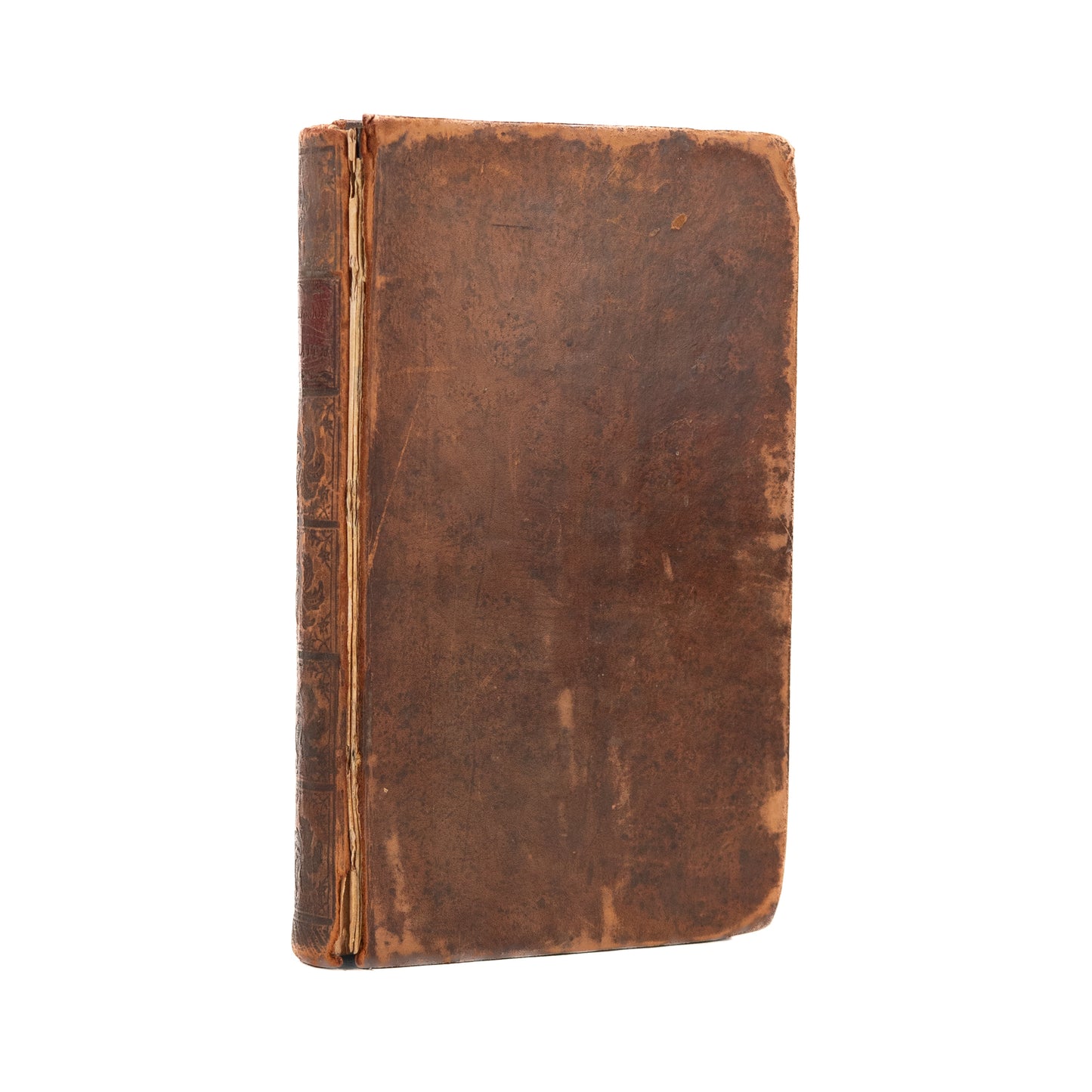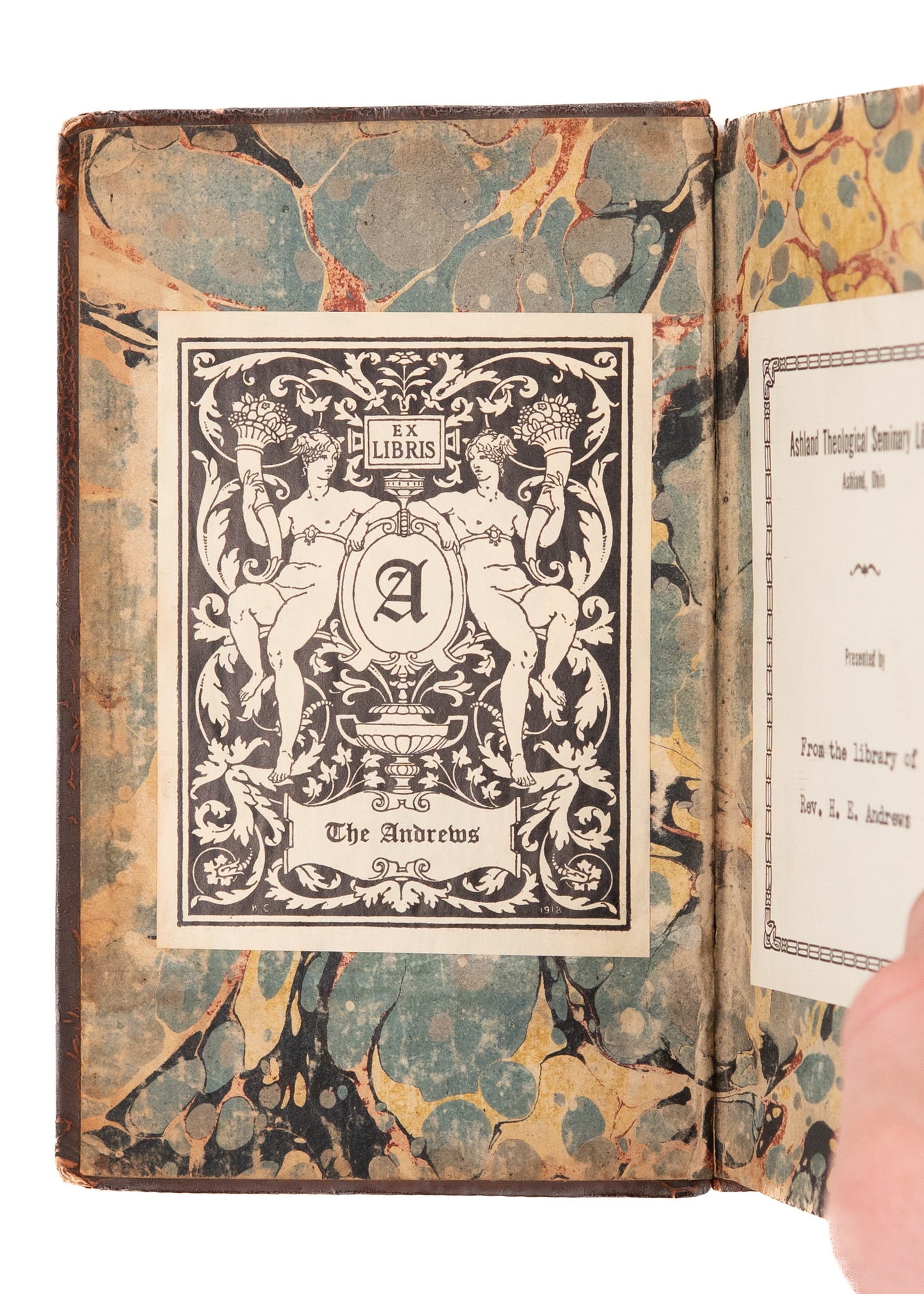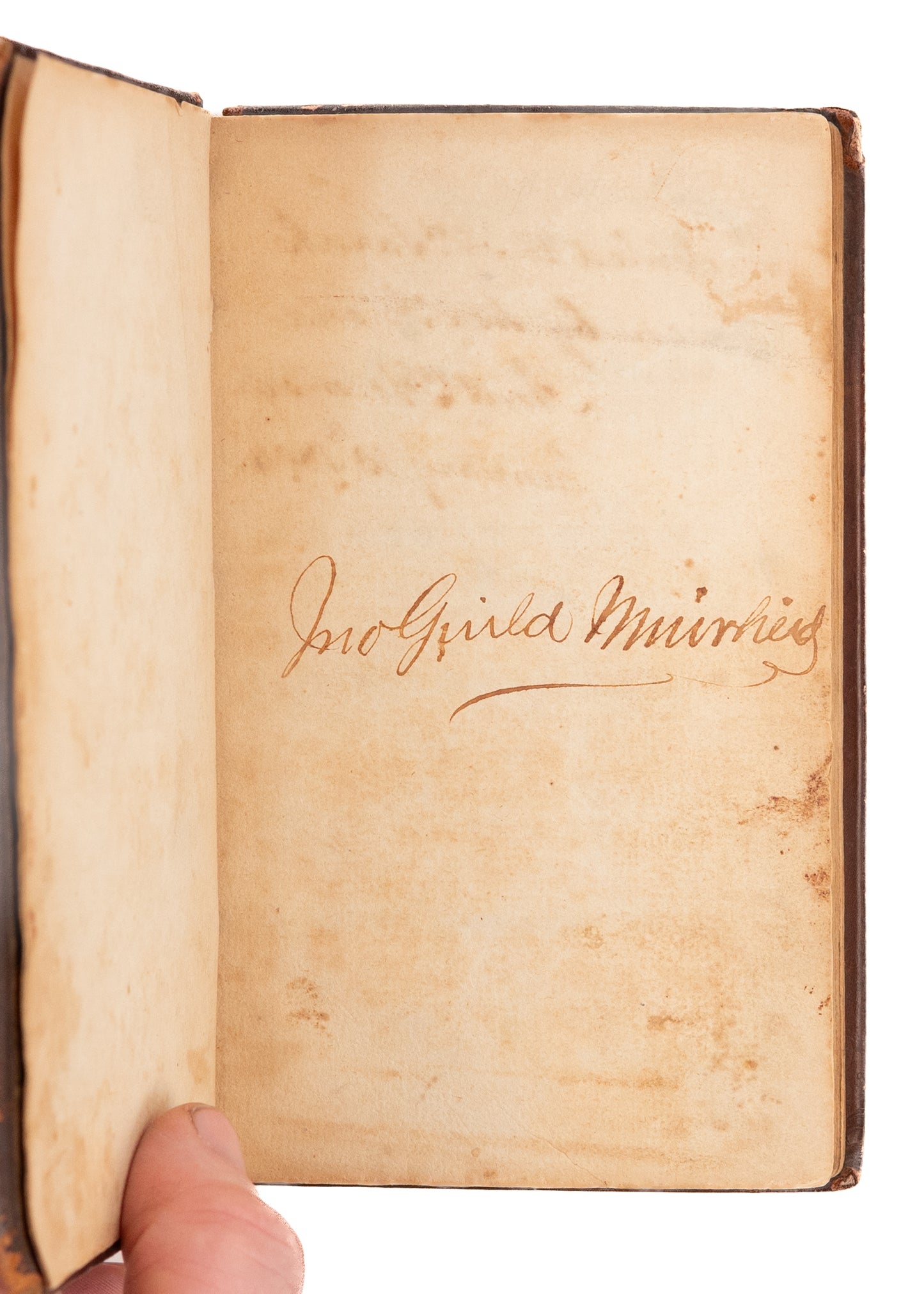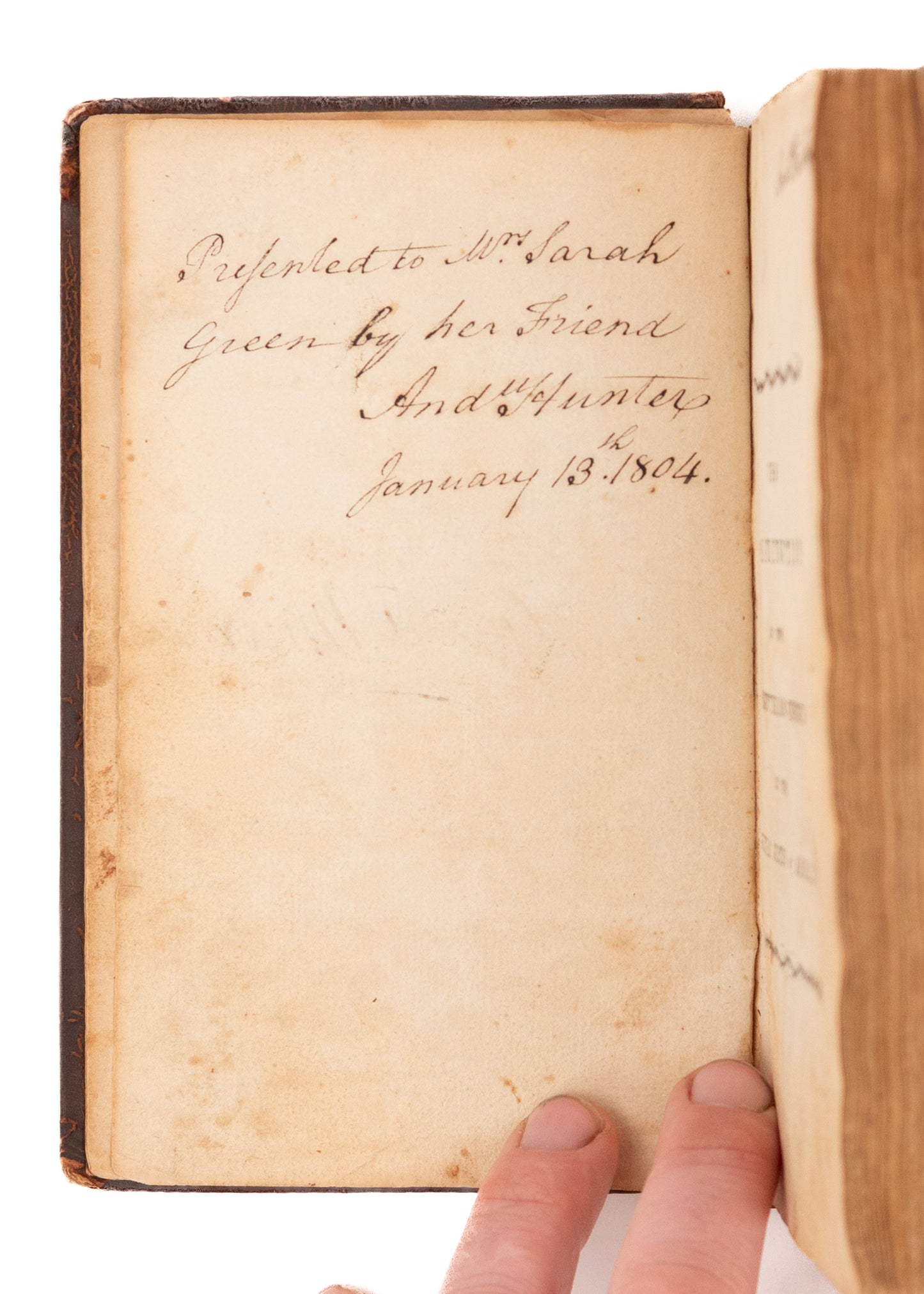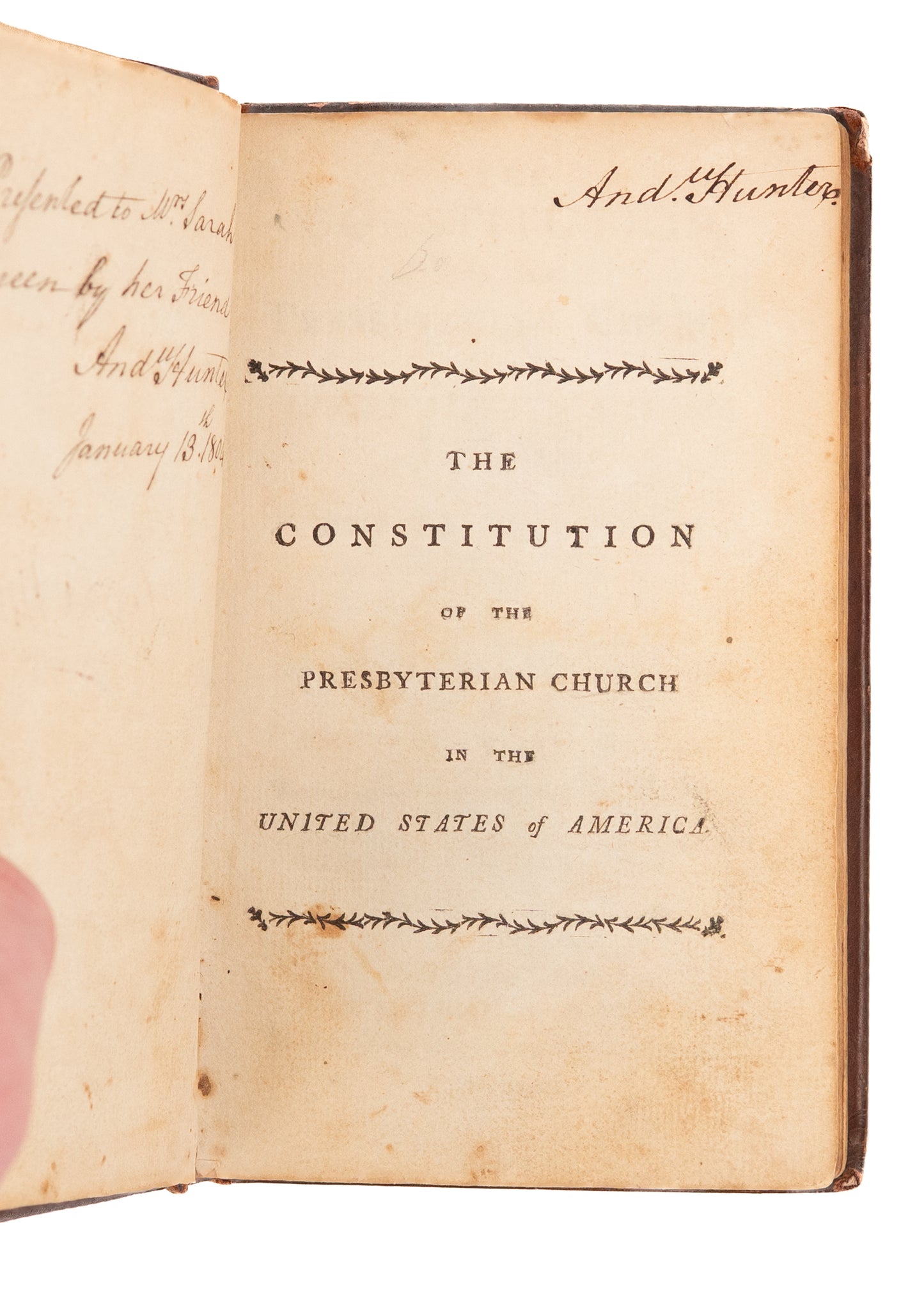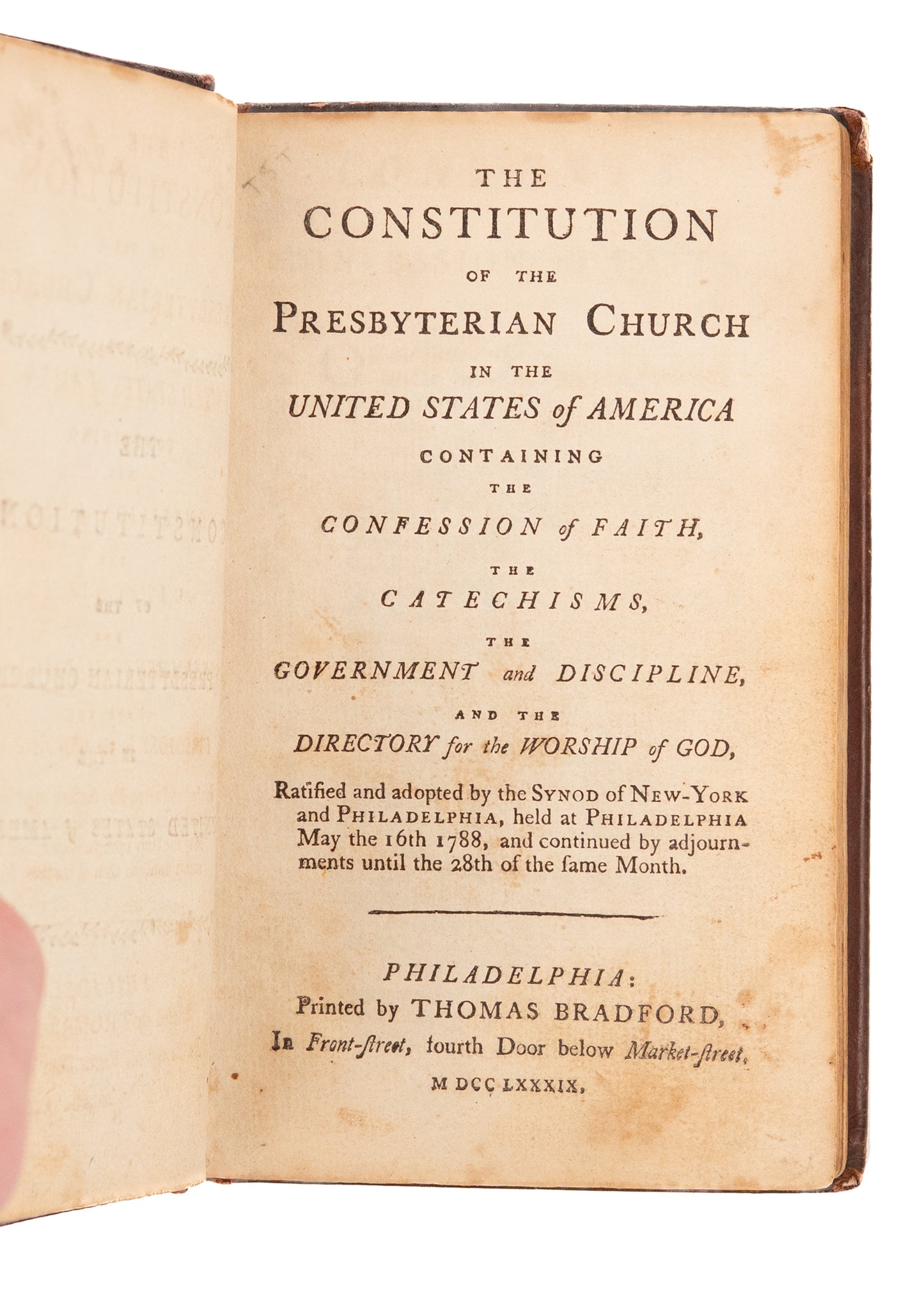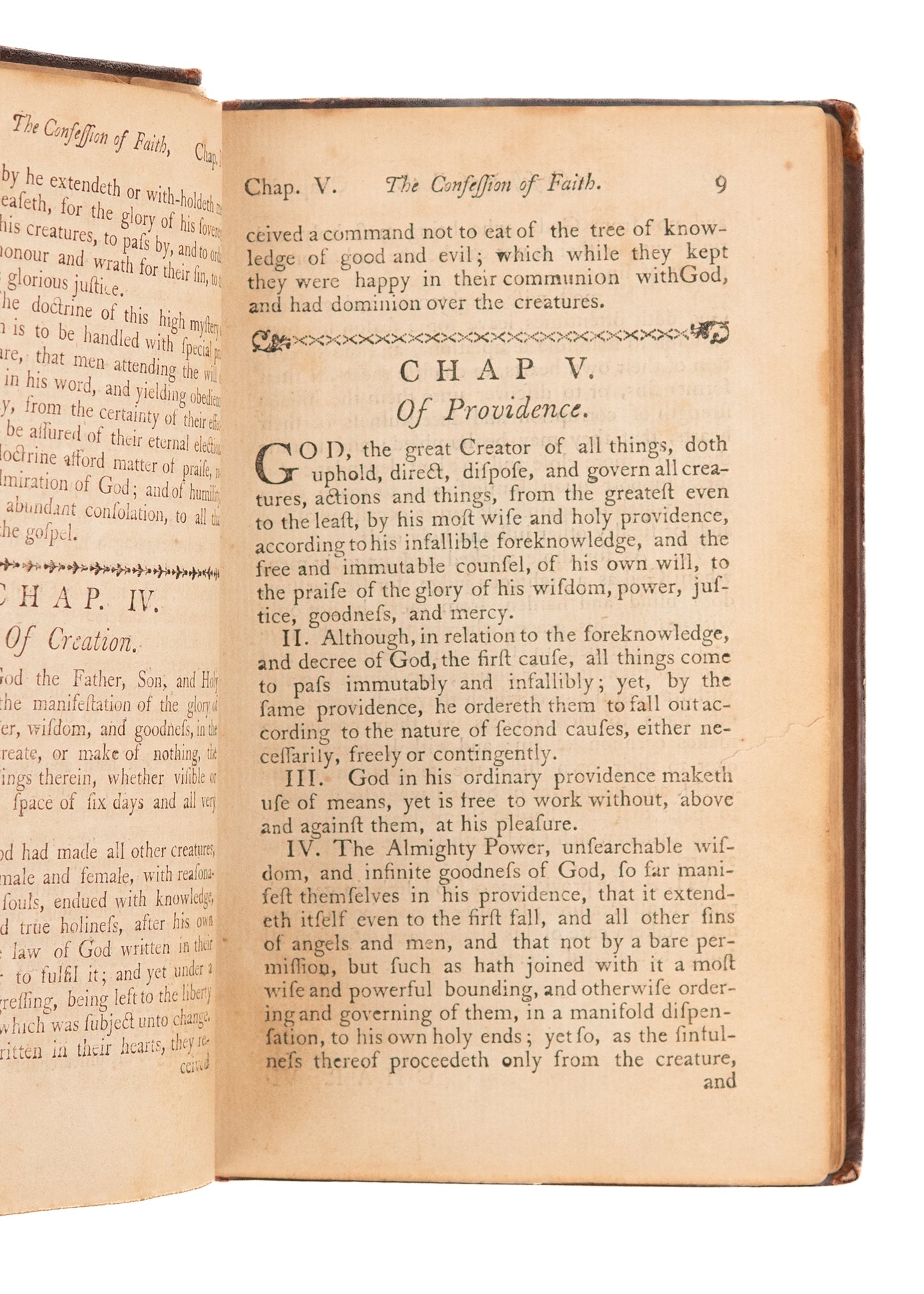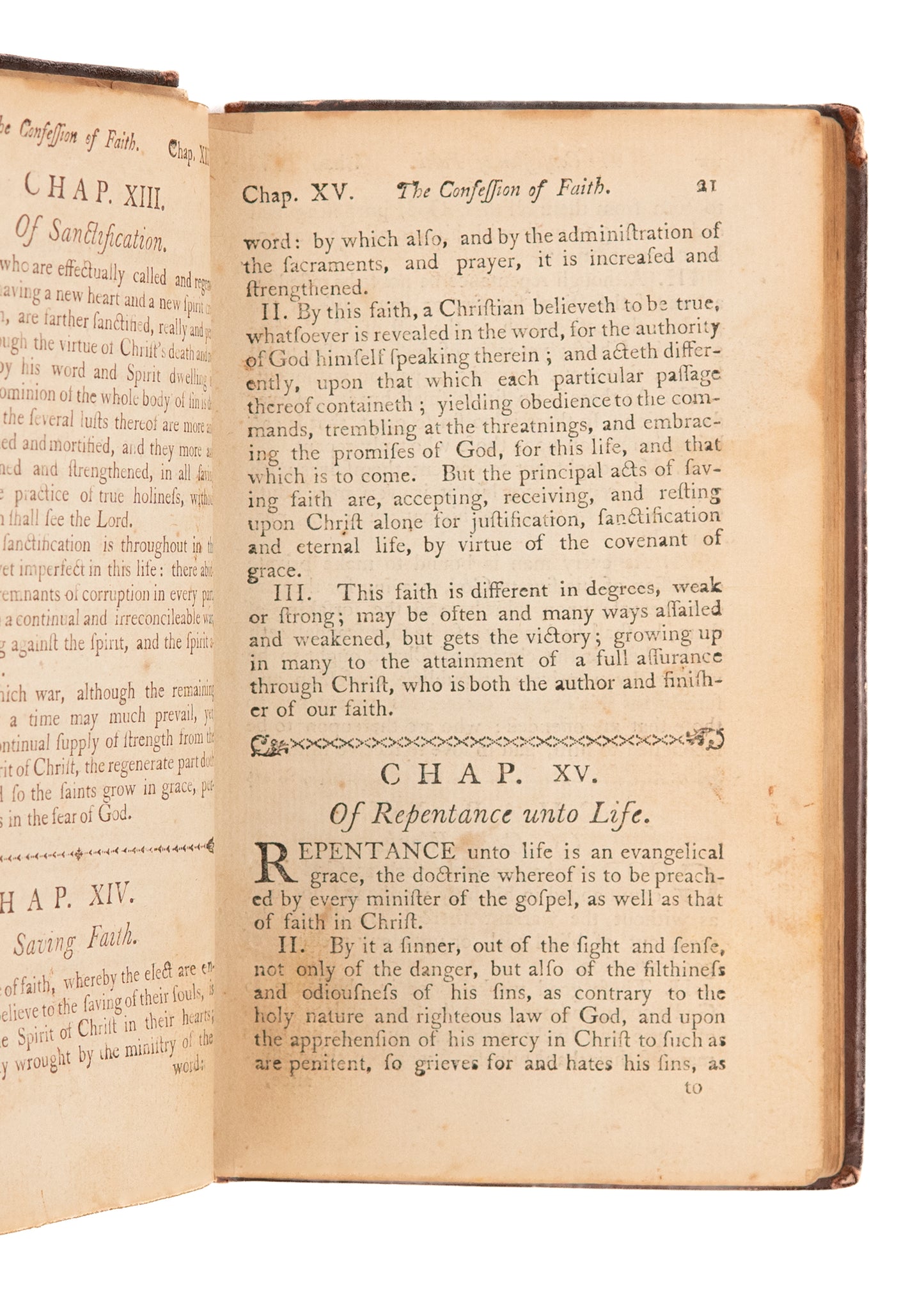Specs Fine Books
1789 PRESBYTERIAN. First Constitution of the American Presbyterian Church. American Revolutionary Provenance.
1789 PRESBYTERIAN. First Constitution of the American Presbyterian Church. American Revolutionary Provenance.
Couldn't load pickup availability
A superb piece of early Americana. In May of 1788 the Presbyterian Synods of New York and Philadelphia gathered in Philadelphia to compose a new American Constitution for the Presbyterian Church of the United States. John Witherspoon, one of the signers of the Articles of Confederation and advocate for adoption of the Constitution of the United States, delivered the opening address. During the same month, May of 1788, just down the street, the Constitutional Convention was also meeting to hammer out one of the most significant documents in Western History, the Constitution of the United States of America.
The present first Presbyterian Constitution published in America bears striking reference to the newly formed Country. As an example, the Presbyterian Constitution explicitly limits the role of clergy and religious organizations relative to the Government of the United States:
That all Church power, whether exercised by the body in general, or, in the way of representation, by delegated authority, is only ministerial and declarative: That is to say, that the Holy Scriptures are the only rule of faith and manners; that no Church judicatory ought to pretend to make laws, to bind the conscience, in virtue of their own authority; and that all their decisions should be founded upon the revealed will of God: Now though it will easily be admitted, that all Synods and Councils may err, through the frailty inseparable from humanity; yet there is much greater danger, from the usurped claim of making laws, than from the right of judging upon laws already made, and common to all who profess the Gospel; although this right, as necessity requires in the present state, be lodged with fallible men. (page cxxxv)
And upon completing their work, they wrote a letter to President George Washington, re-iterating their role in society:
We shall consider ourselves as doing an acceptable service to God in our profession when we contribute to render men sober, honest and industrious citizens, and the obedient subjects of a lawful government. In these pious labors we hope to imitate the most worthy of our brethren of other Christian denominations, and to be imitated by them, assured that if we can by mutual and generous emulation promote truth and virtue, we shall render a great and important service to the republic, shall receive encouragement from every wise and good citizen, and above all meet the approbation of our divine Master.
An important document, and this example owned by important early Presbyterian divine, Andrew Hunter [1752-1823]. He graduated Princeton and was licensed to preach in 1773. He there temporarily succeeded his uncle as pastor at Greenwich [Cumberland County] where he participated in the Greenwich Tea Party. He and a group of other young men [December, 1774] publicly burned tea they seized as a protest against Parliament’s taxes. In 1775 he became the Presbyterian minister at Woodbury.
When the British invasion of New York became imminent in June 1776, Hunter was named chaplain for Colonel Van Cortland’s battalion in General Nathaniel Heard’s brigade of New Jersey State militia. They were enlisted for five months to help defend New York. His diary of the period is an important primary historical resource.
On August 27, he recorded:
Early in the morning the Enemy in the woods attempted to surround our people in different Places which they in some Degree effected. A warm engagement at different Quarters ensued. But the enemy, being double in Number, our Men were obliged to give way. Many were killed, many wounded, some drowned, and others escaped by swimming.” Several days later we retreated from Long Island back to New York City from which our regiment was ordered to Mount Washington on September 9. About 10 o’clock I marched with our Regt. from N. York towards Mount Washington and carried my Gun, Canteen and Ammunition, we arrived about 2 O’Clock P.M. As we marched north the enemy kept up a cannonade all day and as we came along the Road the Balls and Bombs were whizzing about us—we saw two large heaps of balls that had been picked up by our people wch (which). the Enemy had sent into the Camp. We are now got fairly into the spirit of a Soldier’s Life.”That night I lodged for the first time in a tent. We had not been able to use our tents before and slept in the open air. Things were quieter on the 26th and I spent the day reading The Crisis. I found the author’s sentiments to be “pretty just, but illy-drest, and rather plain.
In 1777, he became permanent chaplain in the Continental army and in September 1777 was appointed chaplain for the Fourth New Jersey Continental Regiment. He served during the horrific winter at Valley Forge under George Washington, George Washington even being in attendance at his discourses before the New Jersey Brigade.
After his discharge, he returned to serve as Presbyterian minister at Blackwood and Woodbury, where he founded the Woodbury Academy. He later married Mary Stockton, daughter of Richard Stockton who signed the Declaration of Independence for New Jersey. He also taught at Princeton and then in 1810 was appointed chaplain to the United States Navy.
The Constitution of the Presbyterian Church in the United States of America Containing the Confessions of Faith, the Catechisms, the Government and Discipline, and the Directory for the Worship of God, Ratified and Adopted by the Synod of New-York and Philadelphia, Held at Philadelphia May the 16th 1788, and Continued by Adjournments Until the 28th of the Same Month. Philadelphia. Printed by Thomas Bradford. 1789. 215pp.
A textually good copy, bound in leather with the boards detached, but text is generally solid. Pages are a bit handled with some light foxing. Ex library.
Share
